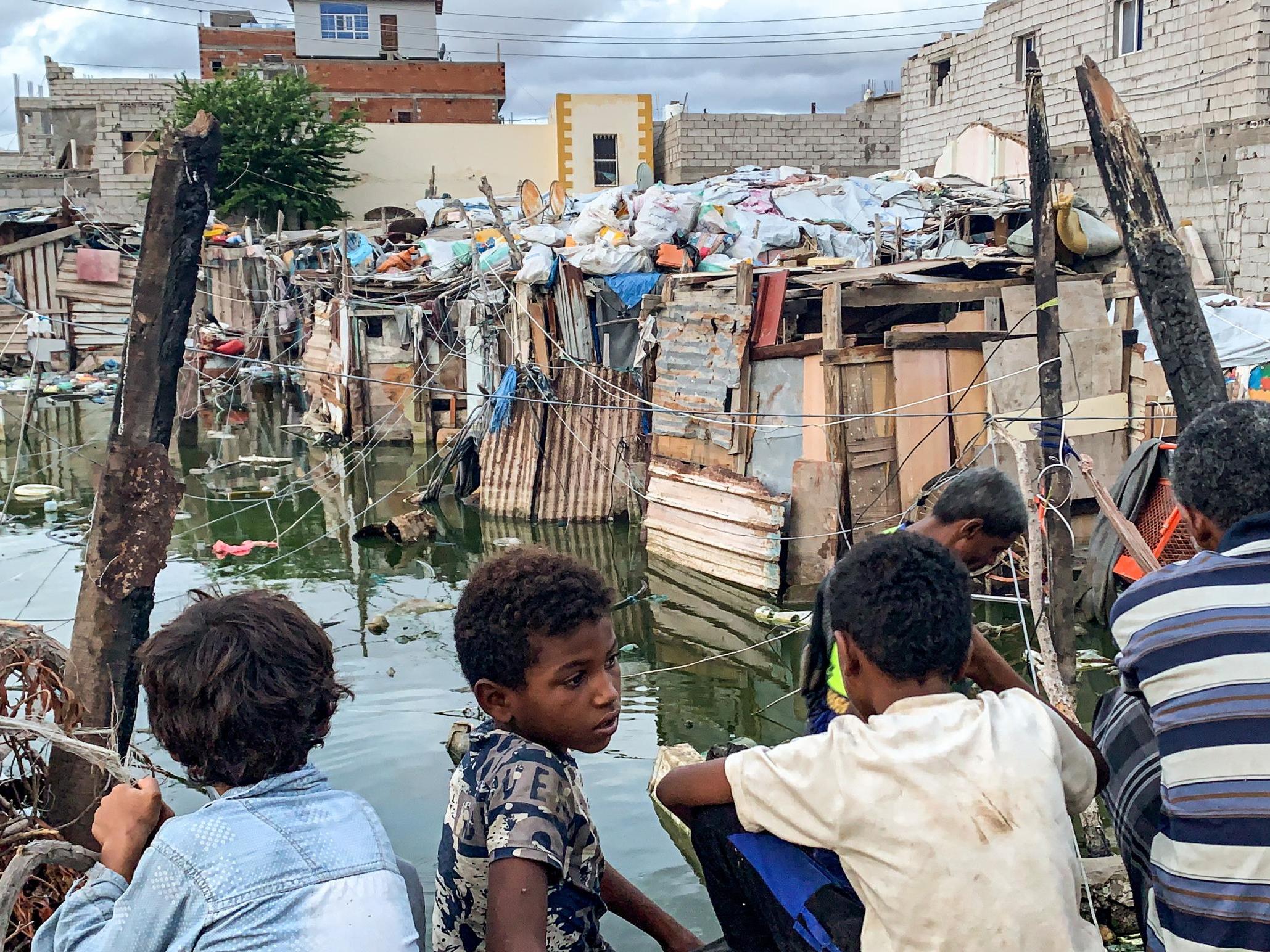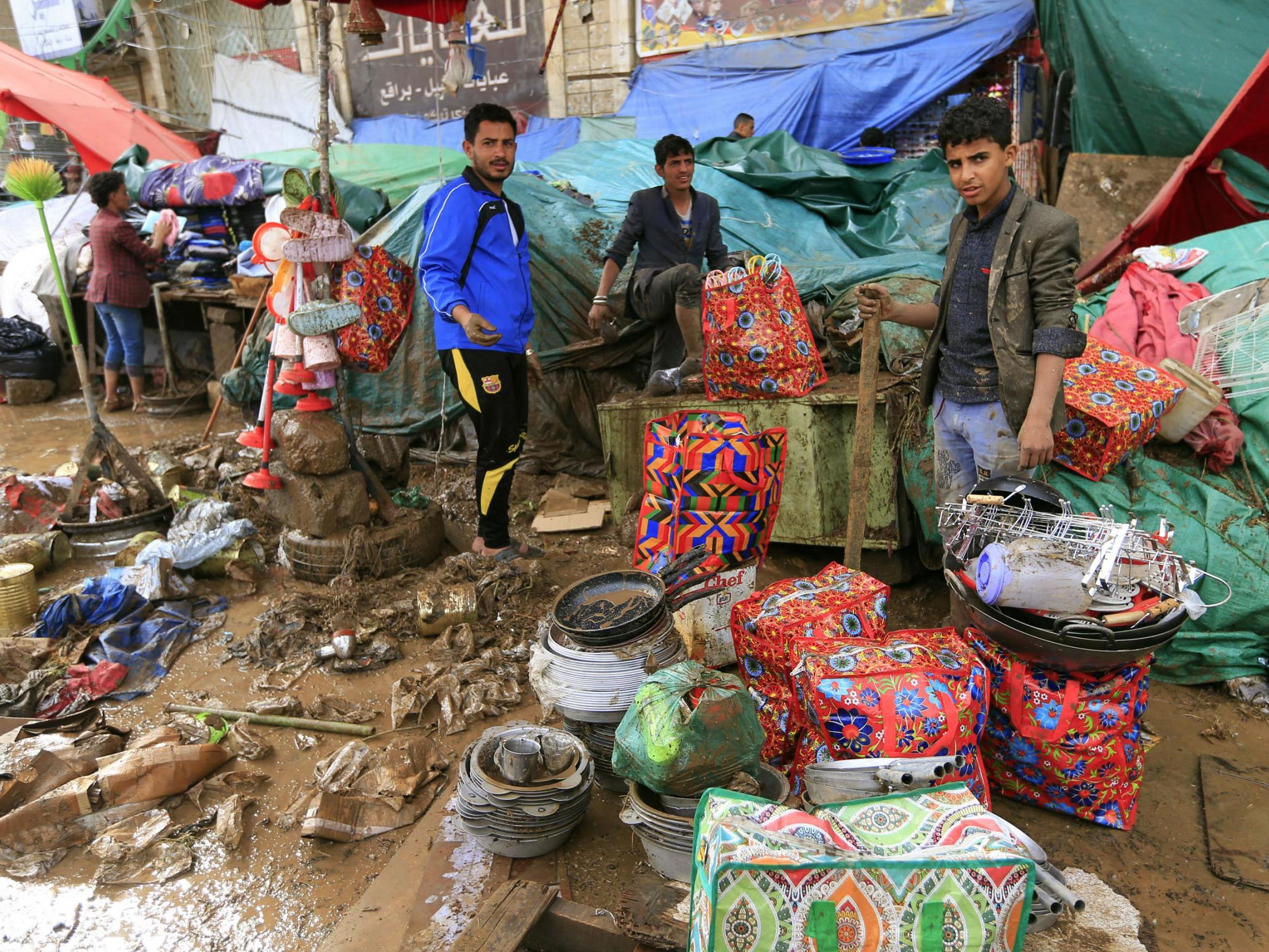War-torn Yemen devastated by floods exacerbated by climate crisis
‘Alarming’ changes in weather patterns sees tens of thousands of people impacted

Already contending with shocking levels of famine and a burgeoning coronavirus crisis, war-torn Yemen’s woes are being compounded by the likely effects of climate breakdown.
In the three months since the first of the seasonal rains — which coincided with the country’s first Covid-19 case — exceptionally heavy rainfall and flooding have killed dozens and destroyed thousands of homes in the country already suffering the world’s worst humanitarian crisis.
Some 130,000 people who have lost homes, businesses and belongings in the floods so far have received help from the International Committee of the Red Cross (ICRC) and Yemen Red Crescent Society, the former said on Monday.
In addition to driving an increase in seasonal and waterborne diseases like cholera, dengue fever and malaria, the deluge has devastated crops and compromised irrigation systems and other water infrastructure needed to mitigate the impact of likely looming floods and cyclones in the already food-scarce nation.
The number of people facing crisis-level food insecurity could rise from two million to 3.2 million in the next six months, Unicef warned last week — as a result of the floods, renewed conflict, locust swarms and an unfolding economic crisis that has seen food prices soar, persistent inflation and the currency in free-fall.

“The combination of coronavirus, conflict and heavy rains this year is hurting millions of Yemenis across the country,” said ICRC’s Yemen chief, Abdi Ismail. “We are taking small steps where we can to support and alleviate some of the suffering, in very difficult circumstances.”
Until recent years, some parts of Yemen received just centimetres of rainfall in a year. However, this year the impacts have been felt across the nation.
The capital Sanaa has been badly hit. Torrential rains in relatively nearby Raymah province and Marib have impacted at least 64,000 people, destroying homes and roads. More than 5,130 families have been affected in the northern Hajjah province.
In the southern provinces, almost 33,000 people living in displacement camps lost their tents and belongings in flash flooding, with thousands also impacted in the typically dry southern city of Aden, where rains caused weeks of power cuts.
In the past week alone, all of Yemen’s provinces have been hit by flash floods and heavy rains, which washed away dozens of homes and killed at least 14 people, according to local media.
Some 13 of those fatalities reportedly took place in the critical port city of Hodeidah, where social media footage showed homes, cars and farms being swept away. Another person was killed in Ibb, and homes were destroyed in Sanaa.
Meanwhile, residents and officials in Yemen’s Unesco-listed “Manhattan of the Desert” appealed for international help after the rains threatened to destroy dozens of buildings in the city of Shibam — famed for its mud-brick skyscrapers dating back to the 16th century.
The increased rainfall chimes with forecasts of how climate breakdown will affect the country, and researchers have warned of an “alarming” change in weather patterns in recent years.
In 2015, Yemen’s eastern provinces saw their first tropical cyclone since modern records began in the 1940s, notes Yasmeen Al-Eryani, a non-resident fellow at the Sanaa Centre For Strategic Studies.
Three tropical cyclones occurred in 2018, another hit in June this year and more are expected in the coming months.
“Although rainfall in Yemen may be intense during its short spring and summer seasons, particularly in the Western highlands, an alarming change in weather patterns in the past decade has resulted in a higher frequency of flash floods and tropical cyclones, a novel weather phenomenon in Yemen,” Ms Al-Eryani wrote on the centre’s website earlier this month.
These are recurring in normally dry areas that typically received around 50 mm of annual rainfall, she added, such as Hadramawt, Al-Mahra, Shabwa and Marib.
“The sudden changes that we are witnessing in Aden’s weather are part of the global climate change impacts,” Dr Wadih Al-Sharjabi, deputy dean of Yemen’s Centre for Environmental Studies and Community Service, told Climate Tracker in June.
Furthermore, Dutch government experts warned in 2019 that the predicted future increase in rainfall and temperatures in Yemen could lead to a shorter growing season, in turn fuelling further conflict in a nation already besieged by six years of war, which has claimed more than 100,000 lives and left millions starving.
And with some analysts suggesting climate breakdown may have played a subtle role in kickstarting Yemen’s conflict, the existing changes to the nation’s climate are already painfully evident to residents.
“This year was the first time such torrential rains hit Aden, we are not used to such floods,” Abu Fatima, who lost his home because of recent flooding in Aden province, told ICRC.
“Overnight my family and I found ourselves homeless and our belongings ruined. We are terrified now every time we hear an announcement that it will rain and feel paralysed because we just can do nothing about it.”
Join our commenting forum
Join thought-provoking conversations, follow other Independent readers and see their replies
Comments